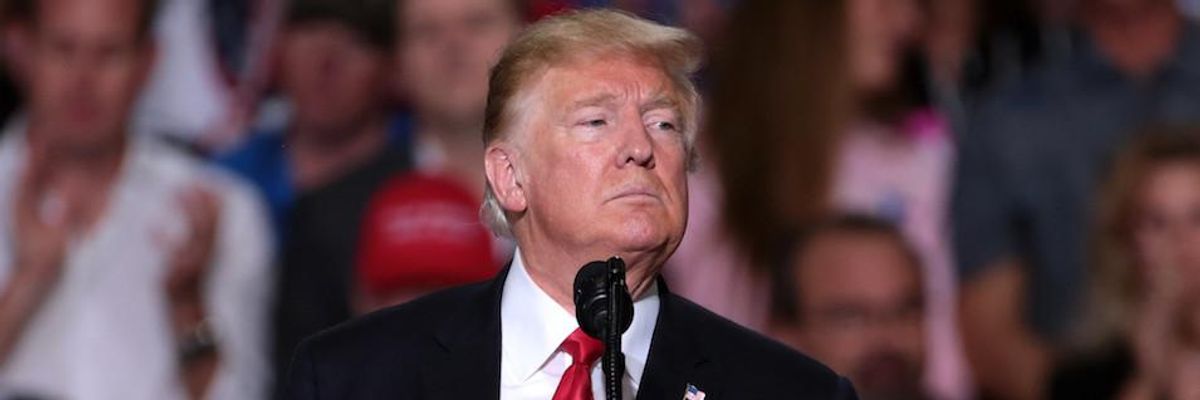President Donald Trump often says he listens to military generals more than anyone else, and, as the White House prepares to send 1,500 soldiers to the Middle East, that claim is being tested by a Friday letter from the American College of National Security Leaders.
The letter, which is signed by 76 retired generals, admirals, ambassadors, and diplomats, was published Friday morning by War on the Rocks. The letter asks the administration not to pursue war with Iran, mainly for strategic reasons.
"A war with Iran, either by choice or miscalculation, would produce dramatic repercussions in an already destabilized Middle East," reads the letter, "and drag the United States into another armed conflict at immense financial, human, and geopolitical cost."
It's unclear if Trump has seen the letter, but if so he appears to be rejecting the advice. On Friday, the president announced he was sending 1,500 soldiers to the Middle East as part of what the president termed a "protective" move.
Though Trump emphasized to reporters Friday he doesn't want war with Iran, moves like that can have dangerous consequences.
Trump and his team must work to avoid conflict, the letter argues, not the least because higher tensions between the two countries could quickly get out of hand.
"As national security professionals with extensive careers in the U.S. armed forces and diplomatic service, we have witnessed first-hand how quickly disputes can spiral out of control," the letter says. "The lack of direct communication between U.S. and Iranian political and military leaders during a time of heightened rhetoric only increases the possibility of a miscalculation resulting in unintended military conflict."
The letter ends with a call to the president to use his powers to push for peaceful solutions to the dispute.
"Crisis de-escalation measures should be established with the Iranian leadership at the senior levels of government as a prelude to exploratory diplomacy on matters of mutual concern," the letter reads. "The protection of U.S. national interests in the Middle East and the safety of our friends and allies requires thoughtful statesmanship and aggressive diplomacy rather than unnecessary armed conflict."
Trita Parsi, the president of the National Iranian-American Council, welcomed the letter, calling it a "really big" moment.
"Will Trump listen to them or to Bolton, Bibi and the Saudis?" Parsi asked.




